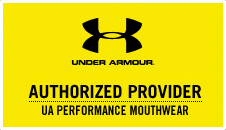Children’s Dental Health
Test your knowledge!
All parents want their children to have healthy teeth and a beautiful smile. Keeping teeth healthy begins at a very young age. Take this true/false quiz to learn more.
1. Parents should begin cleaning their child’s teeth as soon as the first tooth appears.
TRUE - You should begin cleaning your baby’s teeth right from the start. When the first tooth appears, you can use a soft damp cloth, or an extra-soft bristle brush (no toothpaste). This performs two functions. It keeps the baby’s teeth clean, and it helps the baby become accustomed to having his or her mouth cleaned.
2. Parents should brush their child’s teeth with fluoride toothpaste.
FALSE - While fluoride toothpaste is of significant value in reducing cavities, a young child may swallow the paste instead of spitting it out. Refrain from using fluoride toothpaste until your child is old enough to understand that he or she should not swallow the paste. This knowledge usually is seen around 2 or 3 years of age. Also, keep fluoride toothpaste or any other products containing fluoride out of your child’s reach. Many of these items have pleasant flavorings and unfortunately your child may think they are “treats.” Think of fluoride as you would any medication. You would not leave children’s pain-relievers where your child could get to them. Pain relievers are of significant value when used correctly, but they can also be dangerous! Used correctly, fluoride has helped millions of people avoid tooth decay. However, too much can be harmful.
3. Use enough fluoride toothpaste to cover the top of the toothbrush.
FALSE - Once a child is old enough for fluoride toothpaste, use only a pea-sized amount on the brush.
4. Parents should encourage their young children to brush twice a day.
FALSE - Parents should take charge of brushing their child’s teeth until he or she is old enough to do it adequately. While each child is different, this might not be until age 6 or 7. Young children do not have the coordination to brush their teeth correctly and may simply be swishing the brush around their mouth. Two minutes is the minimum amount of time for adequate brushing so be sure to enforce this with a very young child as it may be difficult without parental guidance. When the parent decides that the child is ready to begin taking on brushing, the parent may allow the child to brush alone in the morning, but brush her teeth for him or her at night. Doing this will be sure that food debris and plaque are removed before the child goes to sleep, preventing damage during the nighttime hours.
5. Parents should avoid putting a baby to bed with a bottle.
TRUE - Allowing a child to fall asleep with a bottle can be extremely harmful to his or her teeth. In fact, there is a term for the rampant tooth destruction that this can cause. “Baby bottle syndrome” is the harmful result of allowing a child to fall asleep with a bottle thus resulting in rotting or weakened teeth. When a child falls to sleep with a mouth coated with milk, formula, juice, or any other sweetened liquid, bacterial invasion of the teeth is assured and cavities will develop. This is painful, unsightly, and a very bad way for a child to start off in life.
6. Sucking on hard sugared candy, chewing sugared gum, and drinking sugared soft drinks cause tooth decay.
TRUE - This is an easy one. The presence of sugar in the mouth provides an environment that bacteria love. The longer the sugar is present in the mouth, the more the bacteria can grow. The teeth literally receive a “sugar bath” when a child is sucking on candy or chewing sugar-filled gum. A diet consisting of large amounts of sugar contributes to tooth decay along with other health problems. If you give your child sweets, have him at least rinse his mouth afterwards. Brushing is best!
These tips are just a few of the ways you can help your child grow up with healthy teeth.
Call us if you want to know more. We are always happy to help!




